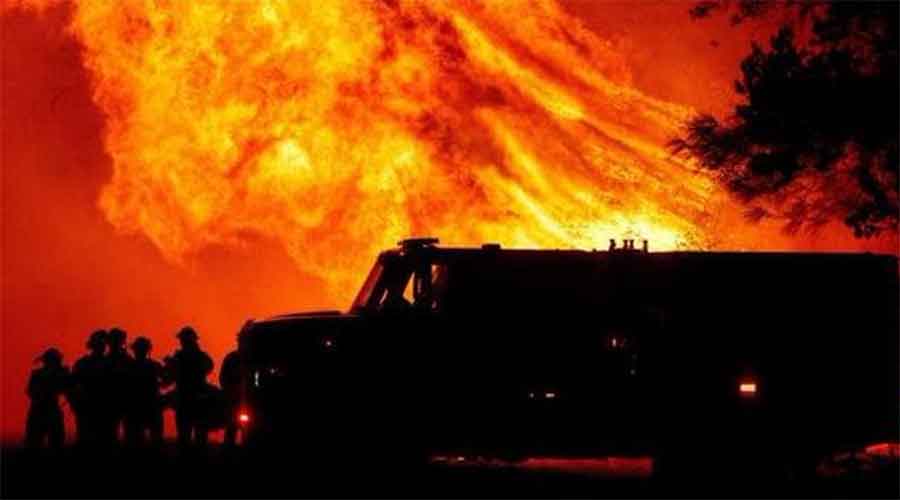A 36-mile-wide line of flames edged into the towns around Portland, Oregon, and cities along the West Coast were smothered in acrid smoke and ash on Friday as history-making wildfires remained unchecked, killing at least 17 and leaving dozens of people missing.
“We are preparing for a mass fatality incident based on what we know and the numbers of structures that have been lost,” Andrew Phelps, director of the Oregon Office of Emergency Management, said as firefighters struggled to contain blazes that have spread across millions of acres of the Pacific Northwest.
Fires in California, Oregon and Washington have torn through idyllic mountain towns, reduced neighbourhoods to ash and spewed so much smoke that pilots were unable to pursue aerial attacks that can be critical in preventing such mass wildfires from encroaching on communities.
Portland’s mayor, fearing the possibility that fires could start and spread in the city, has declared a state of emergency.
Combined, the states have seen nearly five million acres consumed by fire — a land mass nearly the size of New Jersey — in a record-setting made worse, scientists say, by the climate change caused by the burning of fossil fuels.
Such disasters will only become worse as the planet continues to warm. The flames also left a humanitarian disaster in their wake, including three more deaths in Oregon that were confirmed on Friday.
Hundreds, if not thousands, of homes have been lost, most of them in Oregon, where an estimated 40,000 people have been evacuated and as many as 500,000 live in evacuation alert zones, poised to flee with a change in the winds.
Tens of thousands of people have sought refuge in shelters, with friends and in parking lots up and down Interstate 5 — with emergency responders struggling to create safe shelter for all of them. On the outskirts of Portland, a site set up to shelter evacuees had to be evacuated itself as the fire line continued expanding towards suburban towns.











